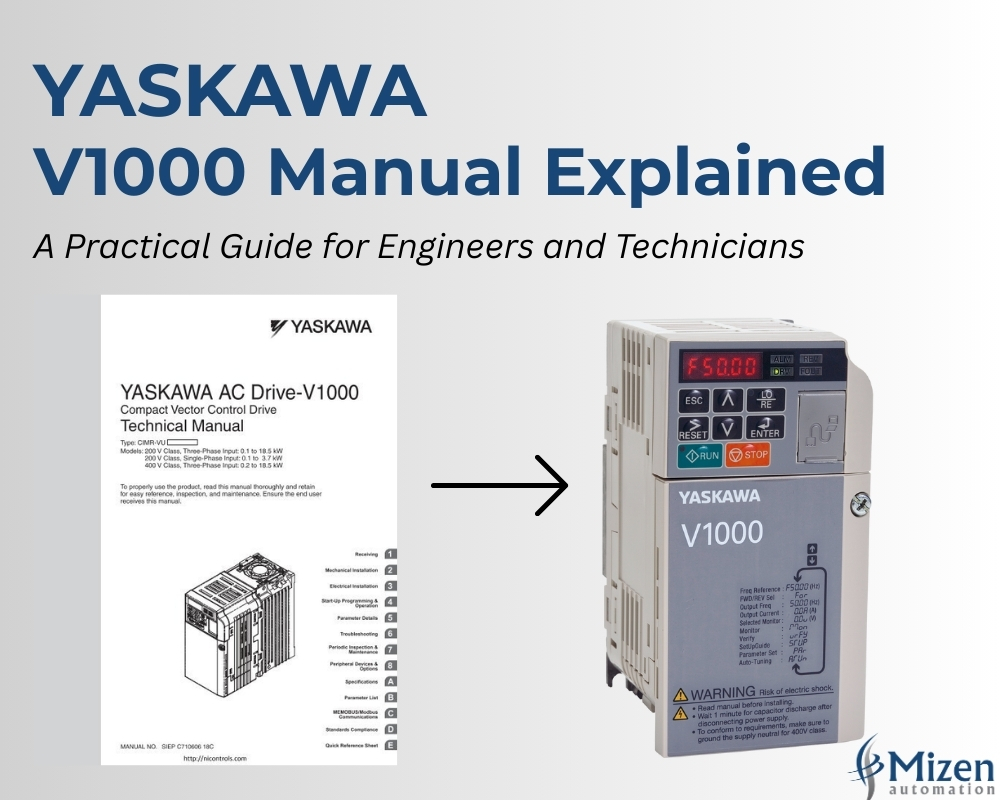No items

What is SCADA? A Simple Guide to Supervisory Control and Data Acquisition
Ever wondered how water treatment plants keep their operations running 24/7? Or how one operator can monitor hundreds of pumps

Schneider Electric is a leading name in industrial automation, offering a range of PLCs designed for various applications. From compact controllers like the Modicon M221 to high-performance systems such as the Modicon M580, Schneider Electric PLCs provide solutions for industries ranging from manufacturing to energy management. But how do these PLCs compare to other brands, and are they the right choice for your automation needs?
In this article, we’ll explore the pros and cons of using Schneider PLCs, helping you determine whether they fit your requirements.
Schneider Electric offers a wide variety of PLCs, from entry-level models to high-end process automation systems. Whether you need a simple machine controller or a complex automation solution, the Modicon PLC range provides options tailored to different levels of control and scalability.
One of Schneider Electric’s standout features is its EcoStruxure platform, a comprehensive architecture designed to optimize efficiency and connectivity across industrial applications. By using EcoStruxure Machine Expert and EcoStruxure Control Expert, users can seamlessly integrate PLCs with HMI, SCADA, and IIoT (Industrial Internet of Things) systems, enhancing performance and monitoring capabilities.
Schneider Electric PLCs are known for their robust build quality and reliability in harsh industrial environments. Many industries, such as food processing, water treatment, and energy management, rely on Schneider’s automation solutions due to their durability and long operational lifespan.
Schneider PLCs support multiple communication protocols, including Modbus, Ethernet/IP, and Profibus, allowing them to integrate seamlessly with other automation devices. This makes them a flexible choice for businesses looking to modernize their operations without completely overhauling existing systems.
Schneider Electric provides extensive technical support, training, and documentation for its PLCs. Whether through online resources, customer support, or local distributors, users can access valuable troubleshooting guides and system updates, ensuring smoother operation and maintenance.
Compared to some other brands, Schneider Electric PLCs can have a higher upfront cost. While they offer excellent features, businesses on a tight budget might find alternative brands like Omron or Mitsubishi to be more cost-effective for smaller applications.
While EcoStruxure provides a powerful automation ecosystem, it comes with a learning curve, particularly for those transitioning from platforms like Rockwell’s RSLogix or Siemens TIA Portal. Engineers and technicians unfamiliar with Schneider’s software environment may require additional training.
Depending on your region, some Schneider Electric PLC models may have longer lead times or limited availability. This can be a drawback for businesses needing urgent replacements or upgrades. Working with a reliable automation parts supplier can help mitigate this issue.
While Schneider Electric is a well-respected brand, it doesn’t dominate the PLC market as much as Siemens or Allen-Bradley. Some companies may prefer a more widely adopted PLC system due to existing infrastructure compatibility or workforce familiarity.
The decision to use Schneider Electric PLCs depends on several factors:
However, if budget constraints or ease of transition from other PLC brands are a concern, you may want to compare Schneider’s offerings with Allen-Bradley, Siemens, or Omron before making a final decision.
At Mizen Automation, we specialize in sourcing a wide range of Schneider Electric PLCs, from legacy models to the latest Modicon controllers. Whether you need a new installation, spare parts, or expert advice, our team can help you find the best solution for your industrial automation needs.
For a deeper comparison of PLC brands, check out this detailed guide on Schneider Electric’s official website.
Interested in which Schneider parts are leading the market this year? Read our post on the most in-demand Schneider Electric Parts of 2025 to stay ahead in your sourcing strategy.

Ever wondered how water treatment plants keep their operations running 24/7? Or how one operator can monitor hundreds of pumps

The Yaskawa V1000 is one of the most commonly used compact AC drives in the world. It is known for

If you have any questions get in contact with us via our enquiry form or call us on +64 (0) 3 964 0692.
"*" indicates required fields